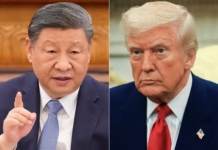In a major milestone for Kenya’s debt management strategy, Citi and Standard Bank have successfully arranged a new US$1.5 billion Eurobond issuance for the Republic of Kenya, alongside a US$579 million buyback of its 2027 Eurobond, in collaboration with the National Treasury & Economic Planning.
This move marks a second consecutive win for the Joint Lead Managers (JLMs), following their earlier re-introduction of Kenya to the global capital markets after a three-year hiatus. The transaction is being hailed as a textbook case of sovereign liability management, attracting strong investor interest, tightening yields, and reaffirming Kenya’s credibility in the international financial markets.
US$1.5 Billion New Eurobond: The bond, priced at a 9.95% yield with a 9.5% coupon, matures in 2036 and features a ten-year weighted average life, amortizing in the last three years.
US$579 Million Buyback: The funds raised were partially used to repurchase a significant portion of the 2027 Eurobond, reducing rollover risk. Approximately 64% of bondholders participated, with $321 million of the older bond remaining outstanding.
Market Confidence: The offering was oversubscribed, reflecting investor optimism toward Kenya’s fiscal and economic direction.
“This deal isn’t just about cash,” said Martin Mugambi, CEO of Citibank Kenya. “It’s about restoring confidence and demonstrating that Kenya is committed to sustainable debt practices, economic transformation, and long-term development.”
Dr. Joshua Oigara, CEO of Stanbic Bank Kenya and South Sudan, echoed the sentiment: “Our role in this issuance reinforces Standard Bank’s position as a key regional partner. It reflects strong investor confidence in Kenya and is a step forward in the country’s growth story.”
According to CBK and Treasury insiders, the bond helps Kenya reduce external debt costs, smoothen its maturity profile, and send a clear signal to global markets that Nairobi is serious about managing its debt burden proactively.
The successful Eurobond issuance comes at a time when emerging markets are navigating global uncertainty, rising rates, and economic recovery pressures. Kenya’s ability to secure favorable terms in such an environment, and to upsize the issuance, demonstrates not only investor appetite but also strong execution by its financial advisors.
The transaction will likely pave the way for further capital inflows and broader investor engagement, as Kenya continues to position itself as a regional economic hub.
By Kelly Were



















